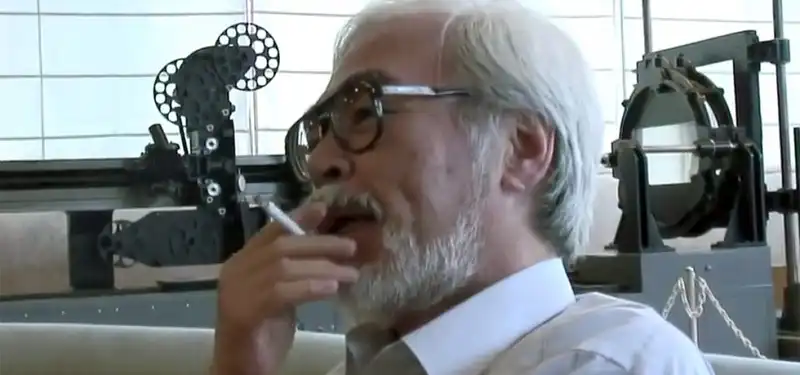Jun 25, 2019
Watch the documentary "10 Years with Hayao Miyazaki" online for free
Fans of Hayao Miyazaki will have no complaints. In recent years, the animation maestro's worldview and work have been closely examined in two behind-the-scenes specials: "The Kingdom of Dreams and Madness" and "The Never-Ending Man: Hayao Miyazaki. Now, the subject of this never-ending documentary is back again in the form of "Ten Years with Hayao Miyazaki. This four-part miniseries was filmed for Japan's public broadcaster NHK, which has made the episodes available on its website.
Like The Neverending Man, the documentary was directed by Kaku Arakawa, who has been documenting the life of Hayao Miyazaki since 2005. Confusingly, this documentary chronologically precedes the feature film. Whereas Neverending Man followed Miyazaki's career from his brief retirement in 2013 to the germination of the upcoming feature film How Do You Live, this series covers the decade up to 2013.
It is set during the production of Miyazaki's last two feature films, "Ponyo" and "The Wind Rises." We see Miyazaki working in his private studio and at Studio Ghibli, and relaxing at home. Those familiar with his habits will not be surprised by scenes in which he criticizes his colleagues, laments his old age, and laments the state of modern society. Still, the series is full of quirky subplots that will delight both newcomers and fans of Ghibli. Who knew that Hayao Miyazaki was working on Wagner's "Ride of the Valkyries" -
This was also the time of the release of Hayao Miyazaki's estranged son Goro's first feature film, Gedo Senki, also produced by Studio Ghibli. Hayao's obvious discomfort with this whole situation is a common theme in the earlier episodes and is some of the documentary's most poignant moments. For example, his scathing assessment of Goro's achievement after the premiere: "He's not an adult yet. He's not an adult yet.
Arakawa was allowed to shoot the film on the condition that he shoot alone, resulting in a rough-hewn, improvisational on-set aesthetic. Viewers who know nothing about Miyazaki may struggle with the general lack of context. However, the series works well as an intimate study of the creative process of one of the world's best animators. It nicely complements other documentaries about Miyazaki, not to mention his autobiographical writings.




Post your comment